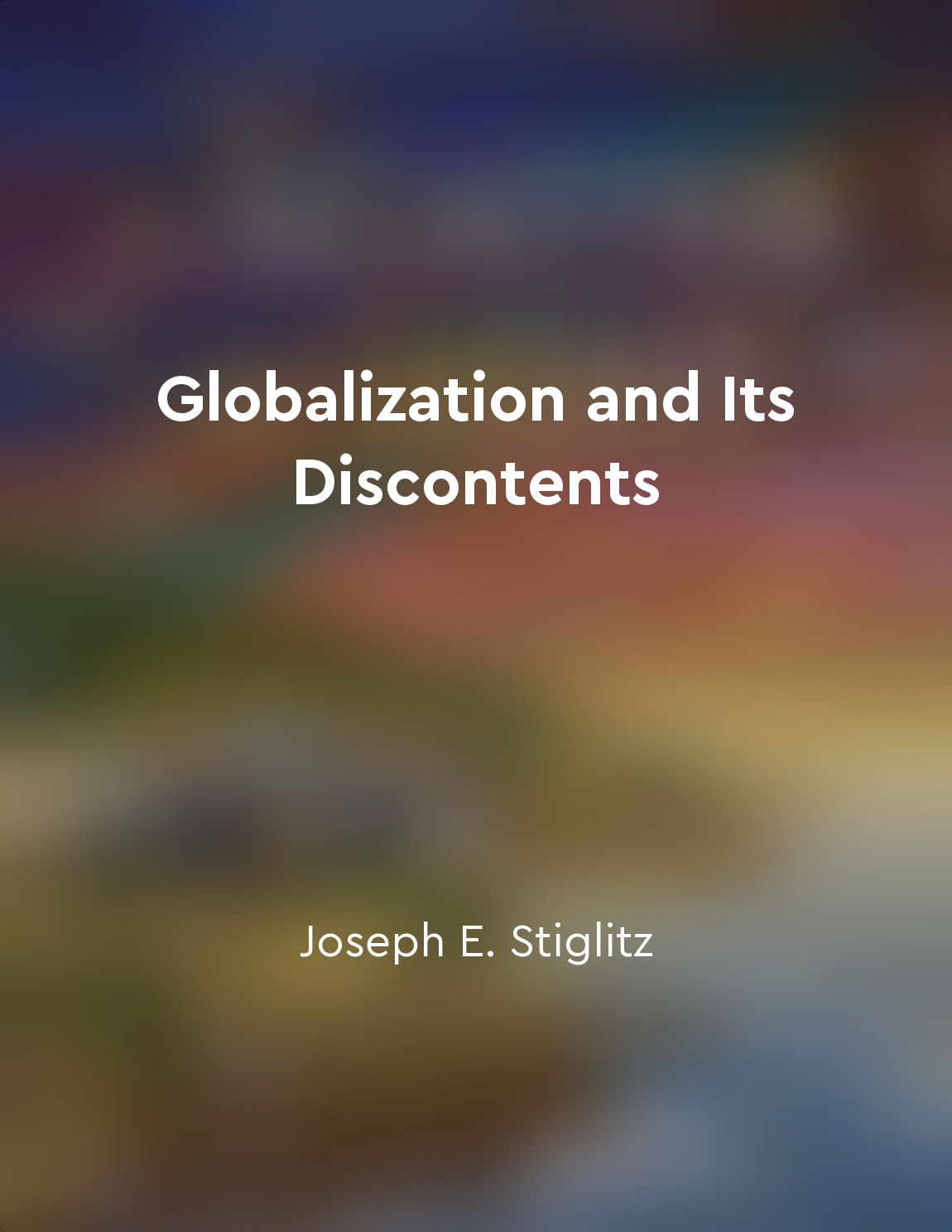The Washington Consensus has failed to deliver positive outcomes for many countries from "summary" of Globalization and Its Discontents by Joseph E. Stiglitz
The Washington Consensus was supposed to provide a set of policy prescriptions that would lead to economic growth and development in countries around the world. However, in many cases, it has failed to deliver on this promise. Instead of promoting sustainable growth and reducing poverty, the policies associated with the Washington Consensus have often led to economic instability and social unrest. One of the main problems with the Washington Consensus is that it places too much emphasis on liberalizing markets and reducing the role of the state in the economy. While these policies may work in some contexts, they have proven to be disastrous in others. For example, in countries where institutions are weak and markets are not well-developed, rapid liberalization can lead to a concentration of wealth in the hands of a few, while leaving the majority of the population behind. Furthermore, the focus on fiscal austerity and tight monetary policy as part of the Washington Consensus has often exacerbated economic downturns rather than promoting growth. By cutting government spending and raising interest rates, many countries have found themselves in a downward spiral of decreased investment, reduced consumption, and rising unemployment. In addition, the Washington Consensus has also failed to take into account the importance of social and environmental factors in economic development. By prioritizing short-term economic gains over long-term sustainability, many countries have experienced environmental degradation and social dislocation as a result of following the policies associated with the Washington Consensus.- The Washington Consensus has proven to be a flawed framework for promoting economic development in many countries. Instead of delivering positive outcomes, it has often led to increased inequality, instability, and poverty. To truly promote sustainable and inclusive growth, policymakers must look beyond the narrow prescriptions of the Washington Consensus and take into account the complexities of each individual country's economic, social, and environmental context.


